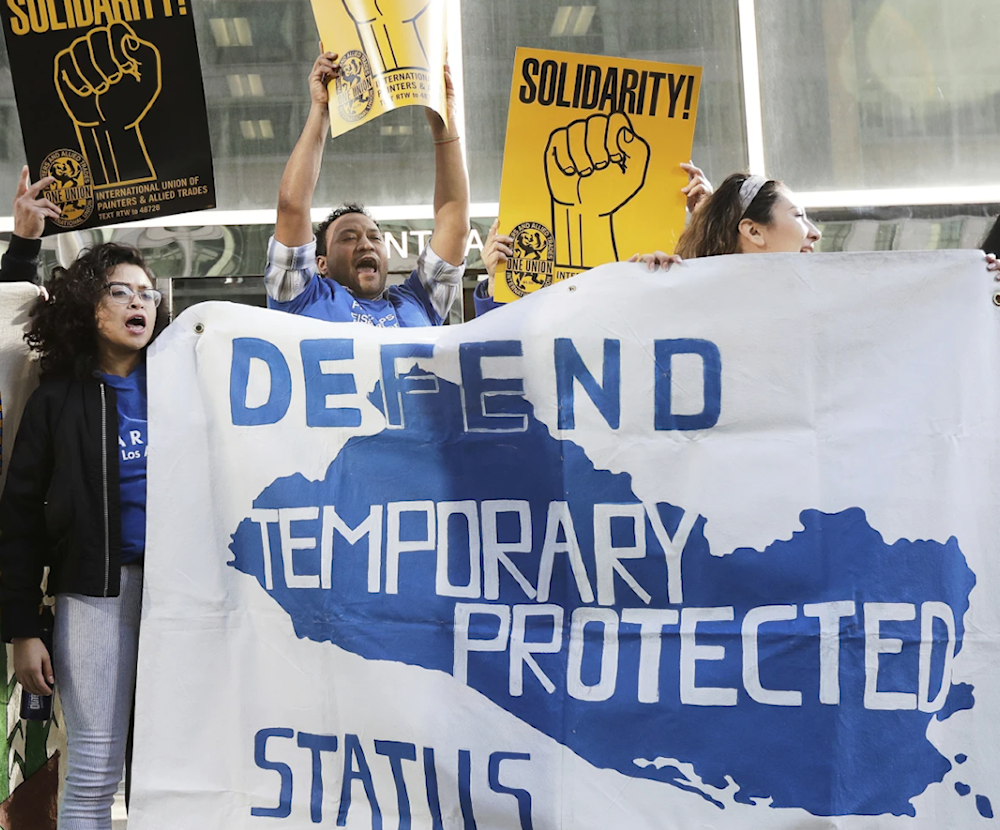US revokes temporary legal protections for Nicaraguans, Hondurans
The Department of Homeland Security (DHS) believes conditions in both countries have improved enough to justify the termination of Temporary Protected Status.
-

Supporters of temporary protected status immigrants hold signs and cheer at a rally before a conference announcing a lawsuit against the Trump administration over its decision to end a program letting immigrants live and work legally in the United States outside a federal courthouse in San Francisco, on March 12, 2018. (AP)
The Trump administration announced Monday that it is ending Temporary Protected Status (TPS) for tens of thousands of Hondurans and Nicaraguans living in the United States.
TPS is granted to foreign nationals who are unable to return to their home countries due to war, natural disasters, or other extraordinary conditions. Following the devastation of Hurricane Mitch in 1998, more than 70,000 Hondurans and 4,000 Nicaraguans were granted this protection.
According to the Department of Homeland Security (DHS), conditions in both countries have improved enough to justify the termination of TPS.
"Temporary Protected Status was designed to be just that -- temporary," said Homeland Security Secretary Kristi Noem. "It is clear that the Government of Honduras has taken all of the necessary steps to overcome the impacts of Hurricane Mitch. Honduran citizens can safely return home." DHS made a similar assessment for Nicaragua, stating the environmental situation has improved sufficiently to allow for a safe return.
Broader immigration crackdown
The move is part of President Donald Trump’s broader immigration agenda, which includes carrying out what he has called the largest deportation campaign in US history. In addition to Hondurans and Nicaraguans, TPS protections have also been revoked for nationals from Haiti, Afghanistan, and Venezuela.
The decision has caused widespread concern within Haitian communities and among immigration advocates, who argue the administration is turning its back on thousands of people facing life-threatening conditions if returned to Haiti. Tessa Petit, executive director of the Florida Immigrant Coalition and herself a Haitian immigrant, told Newsweek, "I'm still in shock, but I'm totally disgusted. This is a complete lie stating that the situation in Haiti has improved enough that it is safe for Haitian citizens to return home. This is a lie."
The Department of Homeland Security maintains that it conducted a full review in coordination with US Citizenship and Immigration Services and the Department of State, concluding that current circumstances in Haiti no longer justify the continuation of TPS.

 2 Min Read
2 Min Read










